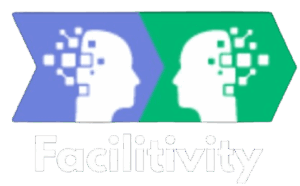Level 2 Program Classes Part 2
Leading Through Coaching Part 2 – extends the core idea of leading through coaching into areas where growth, challenge, and complexity often emerge. Participants explore how to support others in clarifying goals, surfacing strengths, identifying growth edges, and navigating conflict through curiosity and partnership. The class highlights how coaching can shift everyday leadership moments—like making decisions, bringing people into alignment, or driving performance—from directive habits to opportunities for clarity, collaboration, and shared ownership. It offers practical ways to make coaching a more natural part of how you lead, even in moments of tension, pressure, or competing priorities—all within a safe, collaborative space for learning and discovery.
Coaching Conversation 2 – builds on foundational coaching skills by addressing the subtle, often dynamic choices that shape the flow and impact of a coaching session. Participants deepen their ability to co-create purposeful, focused conversations—even when the topic isn’t clear at the start or shifts midstream. The class covers setting session purpose, identifying coachee-driven success measures, and forming in-the-moment agreements that support meaningful progress. It also explores how tone, timing, follow-through, and interruption affect momentum and engagement—whether working one-on-one or in group settings.
You As Coach 2 – building on the foundations of You as Coach, this class invites deeper exploration into what shapes your unique presence as a coach. The modules focus on refining your coaching stance—how you express yourself, take meaningful risks, uphold neutrality, and grow your coaching fluency through ongoing self-development. Participants examine the assumptions and habits that support or limit their effectiveness, while expanding their understanding of coaching principles, markers, and mindset. The emphasis is on subtle shifts that elevate coaching from skillful to masterful.
Working With Teams – equips participants to bring a coaching stance to team-level work—engaging in facilitation that fosters shared ownership, reflection, and forward movement. Through a series of experiential modules, participants learn to work with the team as a system, using coaching principles to surface what matters, create meaningful agreements, and support momentum that comes from within the group.
Participants explore how to use powerful questions, structured activities, and coaching-aligned frameworks—like ADKAR and working agreements—to build readiness, align intentions, and generate insight. They examine the ICF Team Coaching Competencies, practice applying coaching skills in group settings, and reflect on what actually makes teams thrive. Each module builds toward the ability to lead through coaching at scale: evoking clarity, inviting participation, and co-creating conditions where teams can grow and lead themselves within established boundaries.
Exploring Beyond – speaks to leaders who’ve noticed that what gets said isn’t always the whole story—and that meaningful insight often comes from what’s uncertain, unfinished, or unspoken. It adds new tools for helping others move beyond surface-level thinking, especially when they’re stuck or looping in familiar patterns.
Participants learn how to recognize subtle signals, ask questions that open fresh perspectives, and invite additional reflection. They explore how intuition, metaphor, and alternative forms of expression can create openings when logic alone stalls. They also learn to make space for others to reconsider past decisions, unconscious habits, or limiting beliefs.
For leaders already leaning toward a coaching style, this class offers practices to accelerate beyond what they’ve already been doing instinctively—helping them bring their approach into more conversations and more situations with increased trust and clarity.
The Profession of Coaching 2 – features two full-length coaching demonstrations designed to model real-world application of ICF competencies at a professional level. Participants observe, reflect, and debrief to sharpen their understanding of coaching presence, active listening, and evoking awareness in action. The focus is on deepening insight into the subtleties of professional coaching and strengthening participants’ internal sense of what “good coaching” looks and feels like.
Self-Coaching – participants complete 5 hours of structured self-coaching following the process described in Professional Coaching for Agilists. They begin by evaluating their understanding and application of the ICF PCC markers, then select a coaching topic to explore. Using the book’s guidelines, they engage in self-coaching, reflect on the experience, and update their self-improvement plan. At least 15 minutes per hour is spent journaling, and entries are submitted for review. This exercise builds self-awareness, accountability, and integration of the coaching competencies.
Self-Paced Exercises – consists of 5 hours of independent practice using exercises from Professional Coaching for Agilists and related self-study tools. Each hour includes at least 15 minutes of reflective journaling. Participants summarize their learning in writing and submit it for review. These exercises support personal growth and reinforce key coaching concepts through flexible, self-guided work.
Practice 2 – a series of 9 structured coaching sessions with feedback, 2 Reverse Coaching sessions, and 5 PCC Markers Intensive sessions, all designed to build skill and awareness through progressive challenge. Each session includes specific objectives focused on applying key coaching competencies, such as asking questions that serve the coachee rather than the coach’s curiosity. The complexity increases over time, highlighting growth edges and common pitfalls. The goal isn’t evaluation, but insight—participants leave with a clearer sense of where they are, what’s next, and what support they need.
Observed Coaching 2 – consists of the sixth observed coaching session for participants pursuing their PCC credential. It serves as the final assessment within the program, offering a formal demonstration of coaching at a professional level. Participants receive targeted feedback and reflect on their development as they complete their Level 2 journey.
